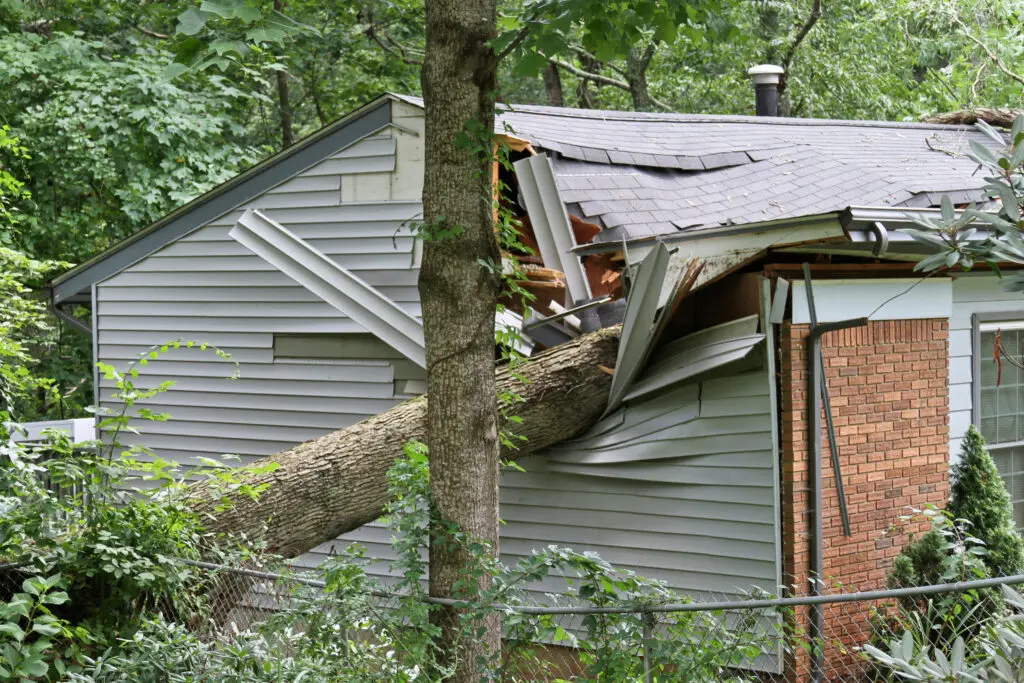
Confusion often arises when comparing Homeowners Insurance Vs Home Warranty and their unique benefits. It’s not uncommon for people to ask whether a home warranty’s worth it, especially if you already have homeowner’s insurance.
The important thing is that both policies are unique in helping you save on sudden costs related to unforeseen issues. We’ll walk you through the details of homeowners insurance vs a home warranty and show you which you need as a homeowner (or even as a home seller).
A home warranty goes by many names and is sometimes referred to as home appliance insurance or a homeowners warranty. It typically covers the repair or replacement costs for various appliances and home systems that experience breakdowns from everyday wear and tear.
Home warranty plans can be customized to cover specific appliances and systems unique to your home, such as HVAC units, refrigerators, ovens, dishwashers, electric dryers, etc.
Homeowners insurance, also known as home insurance, covers your home and appliances from damages and losses caused by perils such as fire, theft, wind, hail, etc. It’s also typically required when applying for a mortgage.
In most scenarios, a home warranty covers items that homeowners insurance will not. What a home warranty covers varies depending on your plan.
Basic coverage typically includes your:
More advanced coverage can also shield your home systems:
Beyond home systems and appliances, you can add additional protections through your home warranty. This includes swimming pools, hot tubs, sprinkler systems, wells, and more. There are several lesser known items a home warranty covers that most people are surprised and excited to learn about.
One must be mindful of exclusions and coverage limits when choosing the right home warranty plan for them. Read the fine print, as you should always know what’s protected under your agreement.
Homeowners insurance coverage varies from state to state and depends on how frequently certain events occur. Standard homeowners insurance covers the dwellings and other structures on your personal property, as well as personal belongings.
Insurance may also include liability coverage, which relates to accidents that occur on your property. For example, if someone is hurt, homeowners insurance will cover medical fees, unpaid wages, or settlements if you are sued. In these cases, you’ll need to coordinate with your insurance company directly to determine next steps.
Some of the most common things homeowners insurance covers include the following:

The claims process for homeowners insurance vs home warranty comes with some key differences. Here’s a quick breakdown to make things clear.
Deductibles vs. Service Fees
With homeowners insurance, you’ll need to pay a deductible before your insurer covers the rest of the loss. On the other hand, home warranties typically charge a smaller service fee when you request a repair.
Who You Call
For home warranties, you’ll contact your warranty provider to file a claim. But with homeowners insurance, you’ll reach out to your insurance carrier instead.
Who Handles the Claim
A technician from the home warranty company will evaluate claims for repairs under your warranty. Meanwhile, homeowners insurance claims are assessed by an adjuster from your insurance provider.
Additional Costs
You may have to pay more than your deductible or service fee if your policy doesn’t cover the issue if repair costs exceed your coverage limit, or if you opt for premium upgrades.
Waiting Periods
Some home warranty companies require a 30 waiting period before you can file your first claim, so keep that in mind when signing up. Homeowners insurance typically has a 30 to 90-day waiting period before policyholders can file claims.
Knowing these differences can help you navigate both options with confidence!
If you have a home warranty, the claim process is simple.
Let’s say you experience a breakdown on your dishwasher that occurs after the manufacturer’s warranty has expired. Requesting service is easy:
Since repairs can be costly for home appliances and other systems, you may save hundreds or even thousands of dollars.
The claim process for homeowners insurance is as follows:
Filing a homeowners insurance claim doesn’t have to be overwhelming. Here’s an easy-to-follow guide to help you navigate the process step by step.
Following these steps ensures a smooth claims process and helps restore your home efficiently.
Eventually, machines and systems start to wear down during the course of regular use. These types of breakdowns aren’t covered under homeowners insurance.
Why should you be financially responsible for mechanical failures that occur from using appliances and systems as they’re designed? A home warranty can have your back when you need it most.
When comparing costs for homeowners insurance vs home warranty, the difference can be quite substantial.
The cost of a home warranty will vary from state to state, but you can generally expect to pay less than $100 per month. SHW offers home warranty plans starting at $36 per month.
Home warranty plans are flexible, and extra coverage can be added to set plans after the start date. This allows you to customize the warranty to your needs as you enhance and renovate your home.
It should be noted that service call fees do apply. This day-of-service fee usually costs between $60-$150, depending on your provider. Select Home Warranty service fees range from $60-$120, depending on your service contract.
The upside to that cost is saving the time involved in trying to find the right professional for the job. Home warranty companies like Select handle all the heavy lifting, freeing you up to focus on other things.
The general estimate for homeowners insurance is about $1,854 per year, according to Forbes. That comes out to around $154 per month.
Different home insurance providers have their own formulas for pricing. This causes the rates to vary widely, so it’s important to take your time and research each company carefully. You could end up saving hundreds by shopping around.
Generally, homeowners insurance coverage will cost you much more than a home warranty.
Hope that, after a detailed comparison of homeowners insurance vs home warranty, it is clear that you need both if you want peace of mind when it comes to comprehensive home coverage.
Insurance and warranties protect completely different aspects of your house, from the structures on your property (insurance) to the systems and appliances you depend on every day (warranty). Moreover, a home warranty adds value to your home, giving you an advantage in the real estate market when you decide to sell.
Setting up a home warranty is quick and easy. Start off with your free quote, and one of our experts will reach out to you shortly.

Don’t wait until it’s too late! Check out our current plans and get your free quote.

Household Tips
Central vacuum systems are becoming more and more popular in homes. The benefits to a central vacuum system are many, but you should keep maintenance in mind, as well. Overall,..

Home Warranty
Every homeowner will eventually deal with an unexpected breakdown. On the other hand, only some homeowners are ready for it. Rather than viewing a new home warranty as an extra..

Home Warranty
Your home is more than just a place to live; it’s an investment that requires ongoing care. But what happens when a crucial system breaks down or an appliance stops..